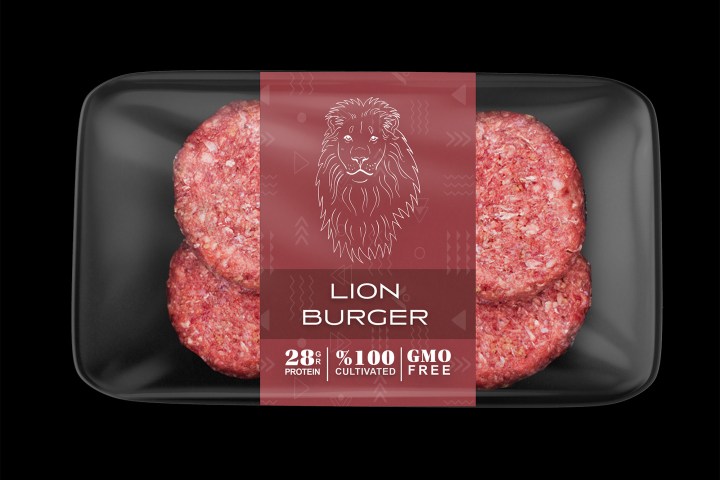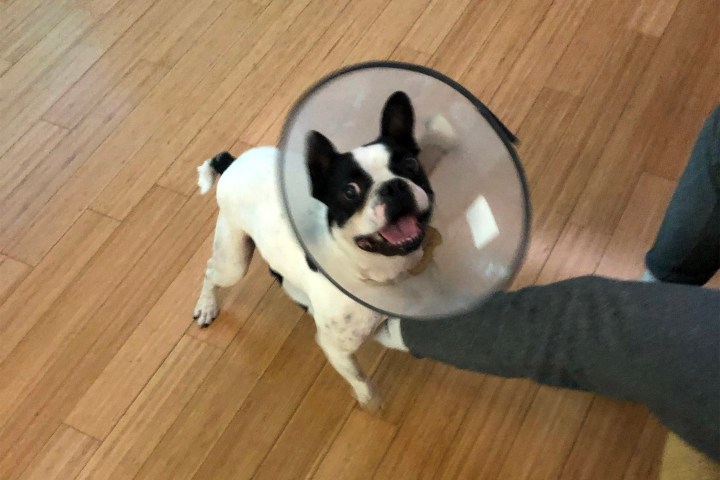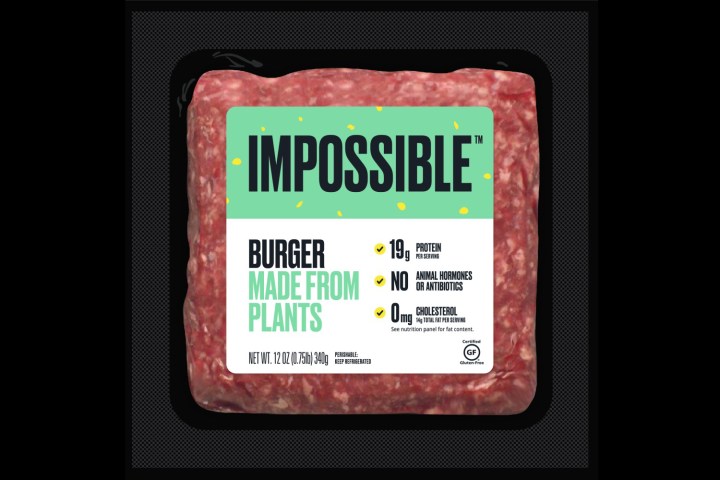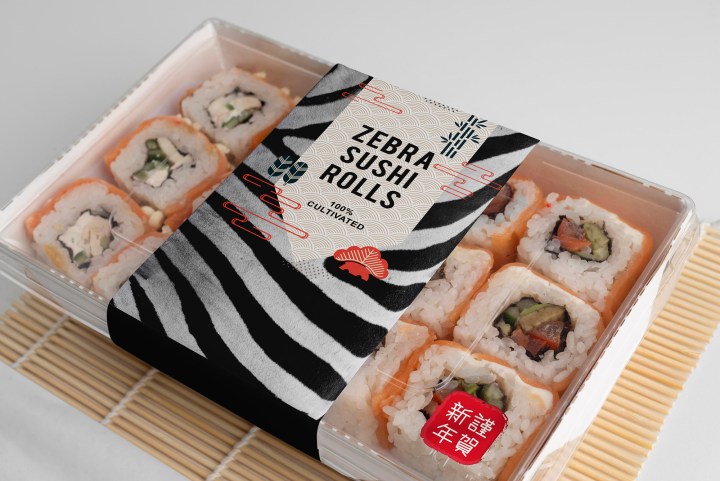“Lion is one of the most — no, not one of the most — the most popular wild, exotic animal in the world,” said Yilmaz Bora. “I mean, everybody watches The Lion King. I think everyone’s enthusiastic about trying cultivated lion meat.”
As If This Then That statements go, this doesn’t totally track. Sure, The Lion King is one of Disney’s best-loved, most widely watched movies. However, by the time you’ve watched heroic big cat Simba (spoilers) introduced as a cute cub, taught about the Circle of Life, sing a handful of big Broadway numbers, lose his dad, befriend a lovable warthog and meerkat duo, fall in love, battle his villainous uncle Scar, restore peace to the Pride Lands, and continue the line with a baby of his own, your biggest takeaway probably isn’t: “Yes, but how would he taste with the right marinade?” At least, not in this household.
But Bora, the co-founder of a food tech company called Primeval Foods, thinks different. He thinks that even if you might balk at chowing down on Simba, there are plenty of others who wouldn’t. In fact, he thinks they’d be more than willing to throw down their hard-earned money for the opportunity. And in an age of lab-grown meat possibilities, he wants to let them.

“We’re focused on [all the popular wild animals],” Bora told Digital Trends. “Like big cats, elephants, giraffes, and zebras – but the main purpose right now is to focus on the big cats. They are the sexy ones.”
From zoo to table (with a stop-off at the lab)
Primeval Foods, established in 2022, is one of a growing (no pun intended) number of food tech startups seeking to engineer cellular meats in labs. Not to be confused with the plant-based meat substitutes created by companies like Beyond Meat and Impossible Foods, cellular meat companies are working hard to create and, ultimately, sell vast quantities of lab-grown flesh that’s indistinguishable from the real thing. That means the same appearance, texture, and taste profile, only without the animal suffering and death we associate with present-day meat manufacturing, as well as the negative environmental impacts that accompany it.

The idea of growing meat the way you’d grow yogurt or beer in a giant tank sounds crazy. However, it’s not all that different in concept from the way you grow new plants from cuttings in a greenhouse: Take a small initial sample of the subject you want to replicate, then provide it with the right artificial conditions needed to cultivate new cell growth.
Big players such as Memphis Meats and Mosa Meat have already been at their mission for the best part of a decade, and attracted tens of millions of dollars in funding in the process. Primeval, which is currently bootstrapping its edible safari, doesn’t (yet) have those same Scrooge McDuck-style vaults of venture cash driving it forward.
What it has is its unique selling point – hence Bora’s description of “sexy” meat, by which he means the kind of provocative messaging that makes headline writers drool. The fact that lab-grown meat companies already have to resort to niches and gimmicks is proof positive of the gap between the bleeding edge (again, no pun intended) of technology and where the rest of us are. It doesn’t matter that very few of us have sampled lab-grown meat just yet; if you’re going to make your arrival in this space mean something, you’d better have a way of standing out from the crowd — whether it’s artificial big cats or lab-grown foie gras.
Beyond domestication
“Our elevator pitch is based on the [premise] that the reason we consume traditional species is not because they are the tastiest, healthiest, or most nutritious, but because they were the easiest to domesticate,” Bora explained. “Since now we can cultivate any species in the world, why do we keep going back to traditional species? Why do we not explore beyond domestication?”
But it’s not just about grabbing headlines. While there will certainly be people attracted to lab-grown lion steaks because they’re lab-grown lion steaks, Bora genuinely believes lesser-known meats like this have something genuine to offer. Even if, previously, they’ve been largely viewed as socially unacceptable to eat.

“Big cats are carnivores with a distinct mobility pattern, and this is the reason behind their unique amino acid and protein profile,” Primeval’s website states. Meanwhile, “elephants are colossal herbivores who travel long distances, and the fattiness in their muscle tissue exposes an exceptional umami experience.”
This is something that Primeval’s tech should allow it to tweak. Lion steak not tender enough? Elephant not sufficiently umami? No problem: Make the appropriate changes and you’ll be able to create something recognizably, err, lionesque or elephantine, only reconfigured to provide a better taste and nutrition experience. The Wagyu beef of the safari set, if you will.
Until we reach that point, Bora said, many exotic animals available to eat around the world (and, despite the social stigma, items like lion tacos do occasionally pop up on menus) will otherwise provide a disappointing eating experience. “If you … just hunt a wild animal [or] an exotic animal and consume that, I can guarantee that it will be the worst meat experience from a culinary perspective,” he said.
It’s enough to turn you vegan. Which, incidentally, Bora is.
The ethics of vegan lion steaks
Five years ago, Bora bought a puppy, a cute little French Bulldog with a square head, dark expressive eyes, and bat-like ears that stuck up from its head. He bought him from a pet shop, and named him Ace. The little dog was Bora’s best friend. He even called his investment company Ace Ventures after the little French Bulldog.

“He was a wild soul,” Bora said. “One time, he had a two-hour surgery for his eye. [He] woke up from anesthesia at the vet, and immediately tried to mate with a female dog, barked and showed his teeth to another male dog, and then brought me a tennis ball to play fetch. And he did all those with [a] patched … eye and a funnel on his head.”
Ace triggered a change in self-described “alpha male” Bora. “After spending time with him, I started to think, like, why do I treat him differently to other animals?” he said. “Why is this one a friend, and why is [this other animal] ending up on my plate? I started questioning things. After a few weeks, I started to watch the videos from PETA.”
Soon, Bora began to invest in meat substitute companies like Meatless Farm, AKUA, Moku Foods, and others. When Ace prematurely passed away from lymphoma, Bora took to having an empty seat present at Ace Ventures, borrowing a page from Amazon’s playbook where board meetings have a vacant chair to represent the all-important customer – but in this case reminding Bora that every decision must be made to positively contribute to animals’ lives.
Discovering that the man who wants to bring the zoo to your dinner table is a vegan is, admittedly, a bit of a swerve. The Venn diagram of “men who dream about making lions a food group” and “guys who will get into long conversations about the top 10 dishes to include lentils” would seem to be two entirely non-touching circles, like a pair of headlights.
But, to Bora, cellular meat is a critical part of weaning the planet off its animal-slaughtering ways. While he’s full of admiration for plant-based alternatives, he also thinks that the majority of people are going to want the real thing, rather than the equivalent of an Impossible Burger. Even if the real thing is grown in a lab rather than running free on the African plains.

On one level, lab-grown meat does exist as a fascinating loophole in the vegetarian or vegan ethical code because, as Bora notes, no animal has to suffer to bring us nourishment.
Not everyone’s necessarily in full agreement, though. In a 2019 paper published in the Journal of Agricultural and Environmental Ethics, New York City College of Technology professor and vegan moral philosopher Carlo Alvaro argues that this debate has, so far, only been argued with regard to the environment, animals, and humans – not deontic logic.
Alvaro points out that while it’s true that animals don’t have to die for lab-grown meat, they must still be exploited by being reared for the taking of cellular samples. Furthermore, there is an “unvirtuous motivation” to a vegan denying themselves animal flesh, only to hop on the first opportunity to eat it with impunity. Why, Alvaro asks, “are we humans even contemplating eating food that is produced synthetically in laboratories, given the abundance of naturally grown plant-based food? By framing the question of lab-grown meat in terms of virtue, creating meat in a laboratory just seems obstinate and evinces lack of temperance and a misunderstanding of the role of food in human flourishing.”
What’s the answer? That, as with many of the ethical questions prompted by new technologies, is far from decided. But they’re questions that, chances are, humankind is going to get to grapple with sooner rather than later.
Lion burger or nothingburger?

It’s tough to gauge exactly how far along Primeval is with its mission. Currently, Bora said, the company has successfully cultivated meat samples weighing around 1 to 2 grams: an amount so tiny it wouldn’t even qualify for haute cuisine portions. While he wouldn’t specify which animal they were modeled on, he said that, “I can tell you they are considered wild in every culture or geography.” (The company plans to make more announcements about these proof-of-concept samples soon, and Bora said that he will be visiting Africa “from the middle of this month” to source samples from wild animals.)
However, Bora acknowledges that this is still very early days. “Proof of concepts should be different for cultivated meat startups, especially for Primeval,” he said. “We focused on ‘making something people want’ as a proof of concept, and we are pretty successful about it up to the present.”
As to what “something people want” looks like, Bora explained that his company aims to combine the fresh and the recognizable for its first product: Good old, new-fashioned lion burgers. “We will first start with burger patties to balance novelty and familiarity,” he said. “Burgers are the most-consumed food in the U.S. According to the U.S. Department of Agriculture, Americans eat an average of 2.4 hamburgers a day. We know what makes meat good — tenderness, superior flavor, melt-in-your-mouth texture — and to achieve this, we’re working to have a product that has evenly distributed fat in every bite.”
Is Primeval simply a publicity stunt looking to drum up headlines? Bora assures me that it’s not. Does the company have a shot at becoming a unicorn (an even more revered –and tasty?– animal than the lion) in the cellular foodie space? This remains to be seen. Will the ethical questions it ponders be increasingly important ones in the years to come? Absolutely they will.
And, finally, would Bora eat a lab-grown French Bulldog? “Instinctively, no,” he said, sounding faintly horrified. “I didn’t think about it before. I’ve [thought about the question of] cultivated human meat. But as for the Ace, the French bulldog? My initial response is no. Just no. I don’t want it.”
But someone probably would. All’s fair in love, war, and lab-grown meats.


